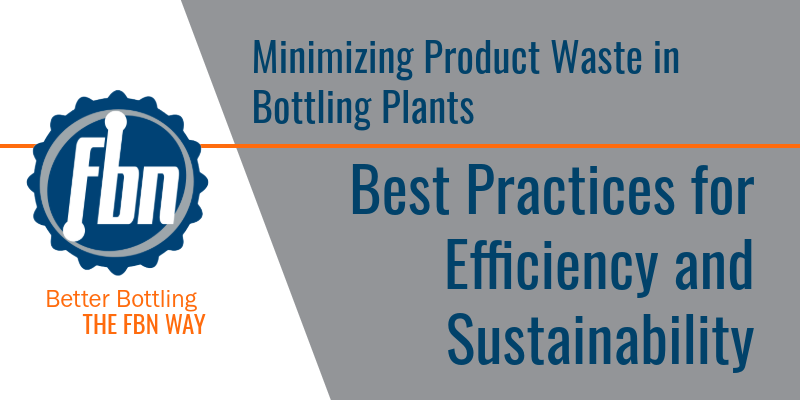In the highly competitive bottling industry, minimizing product waste is essential for both financial success and sustainability. Excessive product waste not only impacts the bottom line but also has environmental implications. In this blog post, we will explore effective strategies and best practices to help bottling plants reduce product waste and optimize efficiency throughout the production process.
Accurate Production Planning and Forecasting:
A key step in minimizing product waste is accurate production planning and forecasting. By analyzing historical data, market trends, and customer demand, bottling plants can optimize batch sizes, production schedules, and inventory levels. This proactive approach ensures that production aligns closely with market needs, minimizing overproduction and reducing the risk of excess product going to waste.
Optimize Packaging Design and Materials:
Thoughtful packaging design can play a significant role in reducing product waste. Consider lightweight and eco-friendly packaging materials that maintain product quality while minimizing waste generation. Additionally, optimizing package sizes and shapes can lead to better stacking and transportation efficiencies, reducing the risk of damage during handling and distribution.
Implement Quality Control Measures:
Rigorous quality control measures are crucial for minimizing product waste in bottling plants. Implement comprehensive inspection processes at critical points along the production line to identify and rectify issues early on. Utilize technologies like automated vision systems to detect defects, ensure accurate filling levels, and guarantee product integrity. By catching and addressing quality concerns promptly, you can prevent the production of faulty or substandard products.
Optimize Equipment Performance and Maintenance:
Regular equipment maintenance and optimization are vital for minimizing product waste. Establish a preventive maintenance program to ensure that machinery is operating at peak efficiency. This includes regularly calibrating equipment, cleaning components, and replacing worn-out parts. By proactively addressing maintenance needs, bottling plants can prevent unexpected breakdowns that may result in product waste.
Employee Training and Engagement:
Well-trained and engaged employees are an invaluable asset in waste reduction efforts. Provide comprehensive training to employees on proper operating procedures, quality control protocols, and waste management practices. Encourage them to contribute ideas and suggestions for process improvements that can reduce product waste. By fostering a culture of continuous improvement and empowering employees, bottling plants can tap into their collective expertise and drive waste reduction initiatives.
Data-Driven Decision Making:
Leverage data analytics to gain insights into production inefficiencies and areas of waste generation. Implement real-time monitoring systems that capture and analyze data on production outputs, reject rates, and material usage. These insights can help identify bottlenecks, optimize processes, and make informed decisions to reduce product waste.
Collaborate with Suppliers and Recycling Partners:
Engage with suppliers who share your commitment to sustainability. Collaborate to explore packaging alternatives, reduce material waste, and implement recycling programs. Partner with recycling organizations to ensure proper disposal and recycling of waste materials generated during the production process. By embracing a circular economy approach, bottling plants can minimize waste and contribute to a more sustainable future.
Conclusion for Minimizing Product Waste:
Minimizing product waste is a critical goal for bottling plants seeking to enhance their financial performance and environmental sustainability. By implementing these best practices, including accurate production planning, optimized packaging design, stringent quality control measures, and data-driven decision making, bottling plants can streamline operations, reduce waste generation, and contribute to a more sustainable industry. Embrace a holistic approach to waste reduction, involving employees, suppliers, and recycling partners, to create a culture of waste consciousness and continuous improvement. Together, we can drive towards a greener and more efficient future in the bottling industry.

